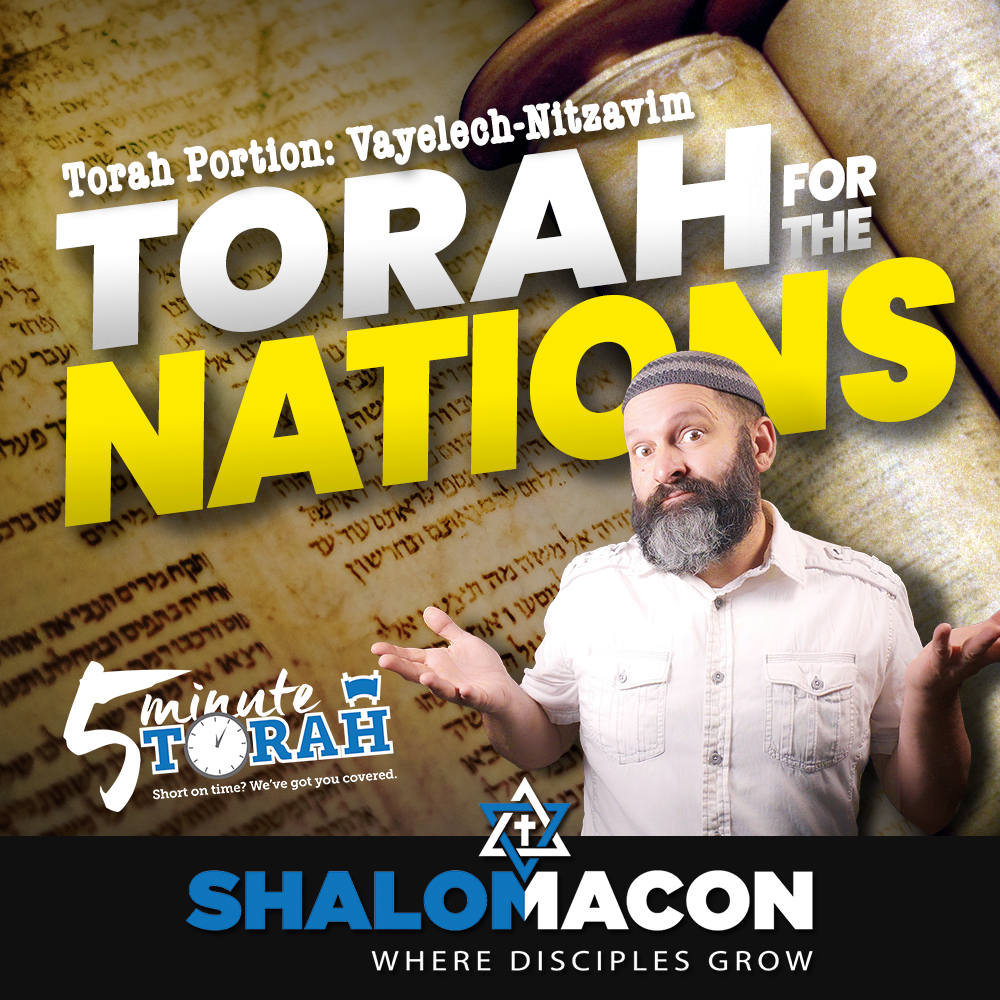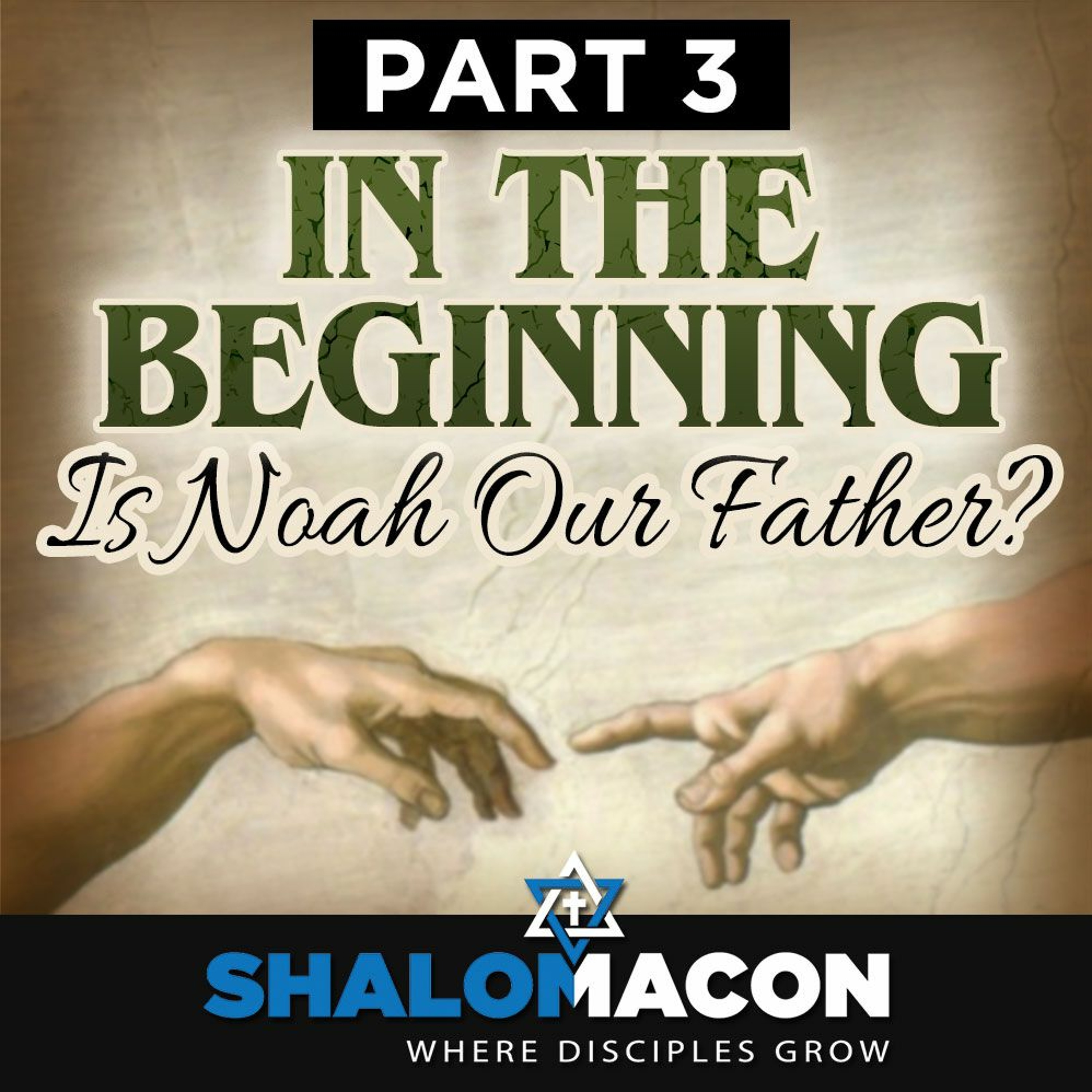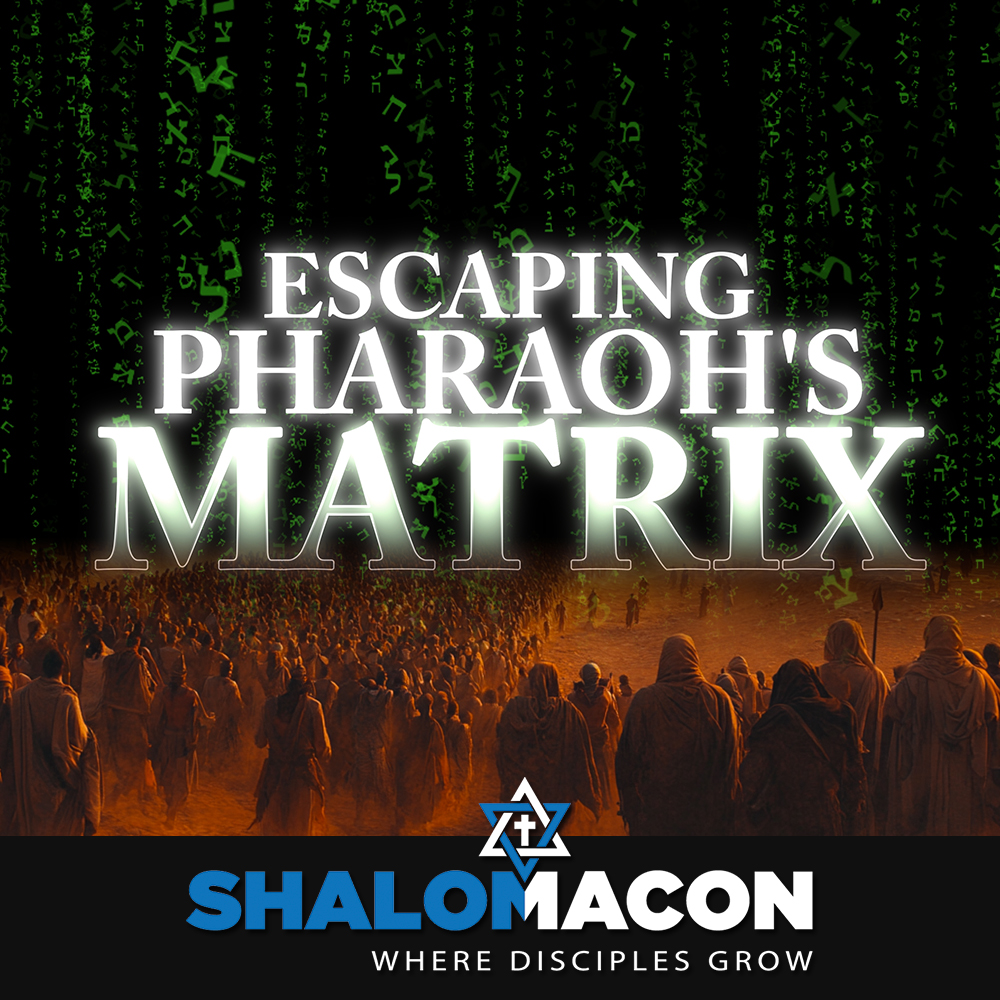[00:00:00] Speaker A: Torah for Gentiles. In the days of the apostles, all the disciples of Yeshua were jewish and trying to figure out what to do with the Gentiles who were coming into faith. Today, however, followers of Yeshua are predominantly gentile, so much so that gentile christians don't have a clue as to what to do with Jews who believe in Yeshua, especially those who hold on to the covenant God made with them at Sinai. It seems the tables are turned in a complete 180 degrees from the situation in the days of the apostles. However, there's been a resurgence of excitement over the tour from gentiles in recent years, and we're faced with a similar dilemma that the apostles faced in the first century. Where do gentiles fit into this jewish faith? We've discussed this issue some in the past, but now we're going to hit it again from a different angle in this week's five minute Torah.
Shalom, and welcome back. I'm darren, and I'm excited to be with you again here for another five minute Torah portion. Before I get into the actual five minute Torah commentary, let's take a quick peek into our Torah portion. This week we're studying the double portion of Nitzavim Ava Deuteronomy 29 nine through 3130. And here are the three things that you need to know about it. Number one, continual covenant from generation to generation. In this Torah portion, God tells the children of Israel, it is not with you alone that I'm making this sworn covenant, but with whoever is standing here with us today before the Lord our God. And whoever is not here with us today. Deuteronomy 20 914 and 15, God declares that not only did he make a covenant with those delivered from Egypt, but also with those of subsequent generations who have not yet been born. God's covenant with Israel will never end, no matter what reformed theologians may try to tell you. Number two, Sukkot. Turn it. Turn it. Moses commands the children of Israel to read the entire Torah during the week long festival of Sukkot, or tabernacles, while they are all gathered together in one place, in order that they would remember their responsibility to the Lord and the covenant that he made with them at Sinai. This tradition persists to this day, where some communities will divide up sections of the Torah for members of the community to read through the entire Torah. During this time, we also remember this commandment with a celebration of Simchat Torah. When we finish the end of deuteronomy and immediately roll the scroll back all the way to the beginning of Genesis and start reading it again in order that the cycle of Torah learning would never end. And number three, change of the guard. Joshua to replace Moses. Our Torah portion also includes the commissioning of Joshua to take the place of Moses. God tells Joshua, be strong and courageous, for you shall bring the people of Israel into the land that I swore to give them. I will be with you. Deuteronomy 31 23 the Torah portion ends with Moses telling the Levites to place the Torah beside the ark of the covenant so that it would be a testimony against the children of Israel if they would stray from its instructions. It is forever the standard by which sin and righteousness are defined. If you're looking for a place to learn, connect, and grow, then Shalom Macon is the place. It doesn't matter where you are in the world. You can find a connection with Shalom Macon through our live services every Saturday and through our private social network we call Shalom at home. Check us out on YouTube and on our
[email protected], for more information. We look forward to connecting with you and seeing you this Shabbat this week's Torah commentary is called Torah for the nations and comes from my book five minute Torah, volume two. In this week's Torah portion, Moses commissions Joshua in the sight of the entire nation and tells him to be strong and courageous as he leads the children of Israel into the land God has promised them. He also hands the Torah over to the Levites and instructs them to read the Torah in the presence of all the people during the festival of Sukkot, or tabernacles at the end of the Shemitah, the 7th year of release. He gives specific instructions for who should hear and learn the Torah during this time. Assemble the people, men, women and little ones, and the sojourner within your towns that they may hear and learn to fear the Lord your God. And be careful to do all the words of this law, and that their children who have not known it, may hear and learn to fear the Lord your God as long as you live in the land that you're going over the Jordan to possess. This is deuteronomy 30 112 and 13. We see something curious in these instructions, however. Not only are the native Israelites supposed to hear the Torah being read and taught, but they are also supposed to gather in the sojourner to hear it as well. Even more shocking is that they are to do so that they may hear and learn to fear the Lord your God, and be careful to do all the words of this law. Verse twelve what does this mean? First, we should recall the Torah's teaching at the beginning of deuteronomy. We are told that when the Gentiles hear all these statutes, they will say, surely this great nation is a wise and understanding people. Deuteronomy four six but does this mean that gentiles dont have obligations to the Torah? According to the traditional reading of the Torah, a minimum of seven categories of laws spell out the obligations for gentiles. These are called the Noahide laws. They are derived from the instructions God gave to Noah after leaving the Arkansas. They include the prohibition against idolatry, the prohibition against cursing God, the requirement to establish courts of justice, the prohibition against murder, the prohibition against adultery or sexual immorality, the prohibition against stealing, and the prohibition against eating the flesh of a living animal. Our sages tell us that this passage instructs jews to invite gentiles to hear the teachings of the Torah so that they will first understand their obligations to these seven laws of Noah. It is also in hopes that they would possibly be attracted to the jewish way of living and become a full proselyte. But for disciples of Yeshua, the list doesn't stop at the Noahide commandments. The apostles consider Gentile disciples of Yeshua to be in a distinct class, somewhere between a son of Noah and a native Israelite, more along the lines of the resident alien living among Israel. Because of this, Gentile, disciples of Yeshua were given four additional categories of laws in acts 15 in order to narrow the gap between them and their jewish brethren. James and the other apostles convening at the Council of Jerusalem, searched the scriptures for a solution to the problem of these gentiles coming into jewish religious space. They found a connection to their issue in Leviticus 17 and 18, where strangers who dwell among Israel are bound to the same standard as the native Israelite in a few areas of the Torah's commandments. And since these gentiles had become disciples of Yeshua, taking upon themselves the kingship of the God of Israel and entering into covenantal community with the jewish people, they should take on these additional responsibilities to integrate them into the body of Messiah. These include the prohibitions against food sacrifice to idols, the prohibition against strangled meat, the prohibition against blood, and a more stringent prohibition against sexual immorality. But wait, theres more. In the epistles we find numerous references to gentiles being bound to the moral and ethical laws of the Torah, in other words, the weightier commandments, as the apostolic scriptures are almost exclusively focused on expounding these principles. For disciples of Yeshua. Rather than being focused on ceremonial concerns for the gentile disciples, Paul and the other disciples were primarily concerned with their behavior, specifically how they treated others. Therefore, these essential commandments naturally took priority when they were teaching their disciples. As we can see, non jewish disciples of Yeshua have plenty of responsibilities in regard to Torah. Rather than feeling slighted or inferior, we should do our best to live out the obligations that we have been charged with. Can we take on more of the Torah's commandments than these? Absolutely. But we should keep in mind to whom they were given and also remember that we are a guest at the table. Our posture should be that of the gentile woman from whom Yeshua distanced himself. She said, yes, Lord. Even the dogs under the table eat the children's crumbs. Mark 728 rather than claiming the loaf as her own, she showed true humility in her response. We should follow her example. Our humility and love for one another should always set us apart as disciples of Yeshua, whether jew or gentile. Only then will we truly be able to hear and learn to fear the Lord our God. And be careful to do all the words of this Torah how do you think the concept of a gentiles relationship with Torah has been overly complicated since the time of the apostles? How do you think the responsibilities of Gentiles could have been better clarified by Paul and the other disciples? I would love to hear from you and others I'm sure would be blessed to hear what you have to say as well. Drop me a note in the comments below. And of course, always don't forget to check out our series repaving the Romans road and download the accompanying study guide for each teaching. You can get started by using the link above or at the end of this video. I'll see you next week for another messianic insight into the eternal Torah of God. Blessings from Shalom Macon, the place where disciples of Yeshua learn to connect and grow.
[00:09:04] Speaker B: Please visit our website, shalommaken.org, to learn more about us. Join our Live Services access other teachings sign up for our newsletter, join our private network that will connect you with our greater community from around the world, or contribute to the work of Shalom Akin. Thank you for watching and we look forward to connecting with.



